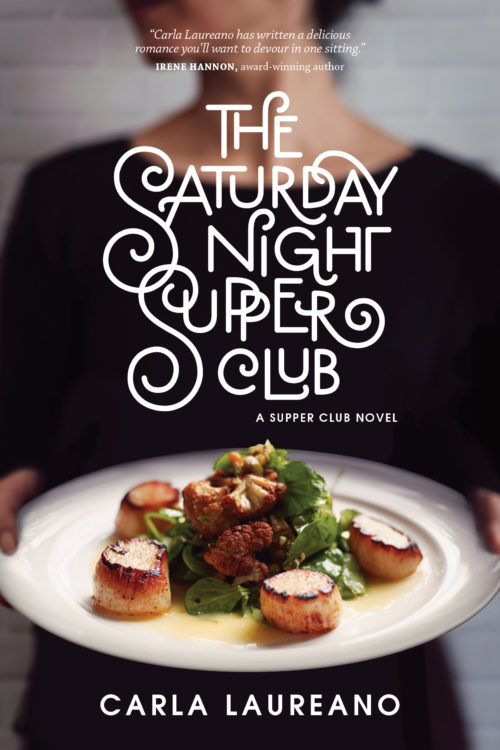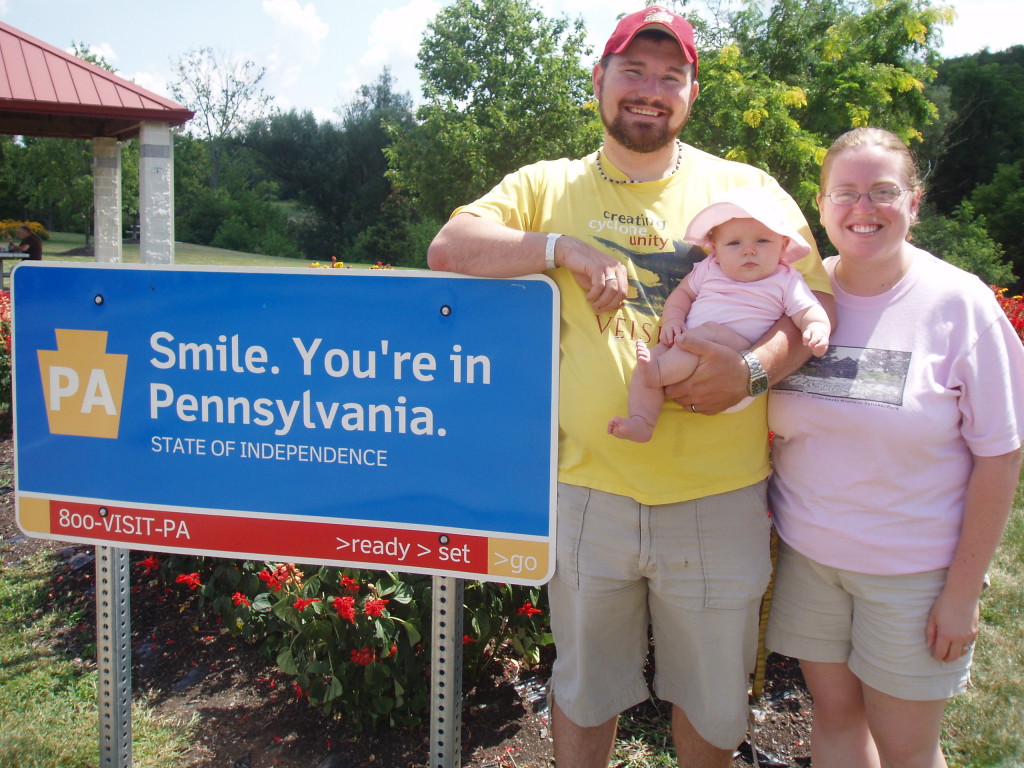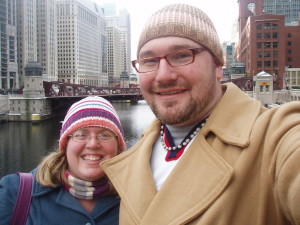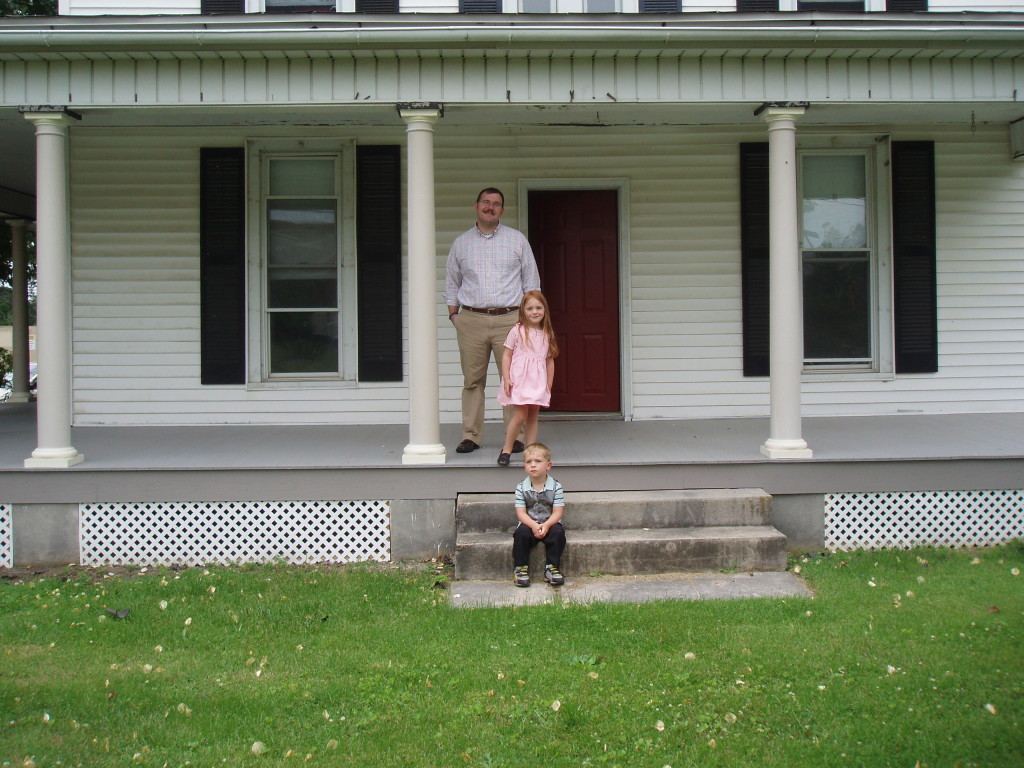The fever had come and gone for a couple of days and our daughter had spent much of her waking hours lying on the couch. When she wasn’t watching episodes on Netflix, she was sleeping. She was not eating. She was not puking. But she was not herself. On the third day, after one missed day of school, my husband took her to the walk-in clinic just to be sure.
They couldn’t confirm that she had the flu because her fever was gone, but they couldn’t dismiss it as a possibility, so they gave her a prescription for an off-brand of Tamiflu. The first dose unsettled her stomach so much that she vomited. But she hadn’t eaten for almost a day.
I was at work when most of this was happening, and honestly, that’s the best place for me to be. I do not have the nurturing gene that offers comfort and compassion when someone (including myself) is sick. I want to fix it, and if I can’t fix it, then I just don’t want to deal with it. Also, it’s hard for me to watch when a family member isn’t acting like their usual selves. I ask a hundred times a day during an illness, “Are you okay?” and the obvious answer is “Duh. No. I’m SICK.” What I’m really asking is if there’s anything I can do, and if not, then at least I feel like I did something by asking.
The day after she went to the doctor, our daughter was feeling well enough to go to school. The next two days she went to school but came home wiped out. Her body still needed recovery time.
All the while, I kept waiting for it to be someone else’s turn in the family. Our son had had a brief round of sickness before our daughter, so maybe he was the carrier. My husband was next.
—
Maybe it’s not the best idea to read a book about a flu epidemic from 100 years ago when your family members are battling various stages of a winter sickness. But I can’t resist a new book by a favorite author.
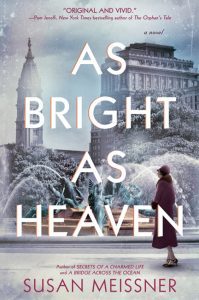 As Bright as Heaven by Susan Meissner tells the story of a family who moves from a rural Pennsylvania town to Philadelphia in 1918, just before what would become a flu epidemic hits the country. An estimated 50 million people died worldwide from the Spanish flu, yet it wasn’t widely reported for a variety of reasons, one of which was involvement in World War I. This is one of the reasons I love a well-researched historical novel from an author I trust–it gives me a glimpse of a moment in history that I might otherwise overlook.
As Bright as Heaven by Susan Meissner tells the story of a family who moves from a rural Pennsylvania town to Philadelphia in 1918, just before what would become a flu epidemic hits the country. An estimated 50 million people died worldwide from the Spanish flu, yet it wasn’t widely reported for a variety of reasons, one of which was involvement in World War I. This is one of the reasons I love a well-researched historical novel from an author I trust–it gives me a glimpse of a moment in history that I might otherwise overlook.
The move to the city for the Brights is meant to be one of opportunity. Thomas takes a job in his uncle’s undertaking business and the family moves into the home that is also the business’ location. The young family is faced with death on a regular basis, even more as the epidemic spreads. Without spoiling anything, I’ll tell you that life gets rough for the Bright family. But what emerges from this time is incomparably beautiful.
This is a story with deep questions about life and death, and it is told from the perspectives of the Bright women–mother and three daughters–each with their own point of view per chapter. This allows the reader to see through their eyes and feel along with them.
At one point, the mother, Pauline, says what many of us try to articulate concerning death:
I am suddenly overcome by my inability to understand why some will survive the flue and some won’t. Why some babies live and some don’t. Why some people pass away in a warm bed full of years while others have their breath snatched from them before they’ve earned so much as one gray hair.
We generally do not like to think about death or hardship, but I appreciated the way Meissner narrowed the focus to one family and how they responded to the circumstances they faced. It is applicable to us all. In the author’s note, Meissner writes:
Death comes for us all in one way or another. It is a certainty. Our lives will one day end, and most of us never know when. Interestingly enough, it is our mortality that gives our existence its value and beauty. If our days were not numbered, we probably wouldn’t care how we spent them. How does this knowledge that we are mortal affect our choices? The risks we take? The risks we don’t? These were the questions I wanted to explore as I wrote this book and that I wanted you to ponder as you read it. We are, all of us, living out the stories of our lives. Each of our stories will end, in time, but meanwhile, we fill the pages of our existence with all the love we can, for as long as we can. This is how we make a life.”
Yes. And amen.
—
When my husband filled the prescription for our daughter, the pharmacy only had enough liquid medicine for half of what was required. We had to go back later in the week to get the rest. So, on a Friday afternoon, after work, I stood in line at the pharmacy counter awaiting my turn. When I gave the name and birthdate to the person behind the counter, I was met with a “we’re still working on that.” He came back saying that I’d have to come back Monday because they were out. By Monday, our daughter was supposed to be done with the prescription.
So, I asked to speak to a pharmacist. As I told him the predicament, I could see the concern on his face. He remembered my daughter and set to work typing on the computer trying to find a solution. For whatever reason, the promised second half of the prescription wasn’t there. Come to find out, only two stores of this particular pharmacy in the county had what I needed. One was in the city. He made arrangements for me to pick it up later in the day, and I couldn’t help but think of the flu epidemic I had so recently read about.
Back then, there was no medicine for the flu, just a wait-and-see approach. It was highly contagious. It still is. Our kids had to wear masks when we took an unexpected trip to the ER to have my husband’s chest pain checked out. People are still dying from the flu and from lack of access to the medicine. The shortage of medicine the pharmacies were experiencing probably weren’t going to cause panic, but I could imagine the desperation. I counted myself lucky to have the means to drive to another pharmacy without too much inconvenience to get the medicine we needed. And grateful for insurance that covers vital prescriptions and doctor visits.
I know this isn’t how it is for everyone.
Maybe this is some of what history can teach us–gratitude. When the Spanish flu epidemic hit, there was no such thing as a flu vaccine, and we can debate its effectiveness all we want, but we haven’t seen anything like millions of people dying from the flu in the last 100 years. (Have we? I hope we haven’t.)
But I hope that history doesn’t make us complacent. Sure, we personally might be better off than someone who lived 100 years ago but let’s not assume everyone enjoys the same status. It also makes me wonder what the next 100 years will hold. What is our generation’s “flu epidemic”? (Opiod crisis? School shootings? These are a couple of the options, I suppose.)
—
When I realized this book was a straight historical (as opposed to a dual timeline story with a contemporary and historical thread), I was a little disappointed. I love how Meissner’s previous books have connected a storyline taking place in the present with a storyline taking place in the past, especially with an object relating to both timelines.
But I think she did that anyway. Flu is something almost all of us can relate to. It’s common. It’s still around. And reading this book DURING FLU SEASON was all the connection I needed to relate to the story.
This is the kind of response my history books in school could never elicit. I need a story, something personal, to make the facts stick. And this book will stay with me for many months to come.

